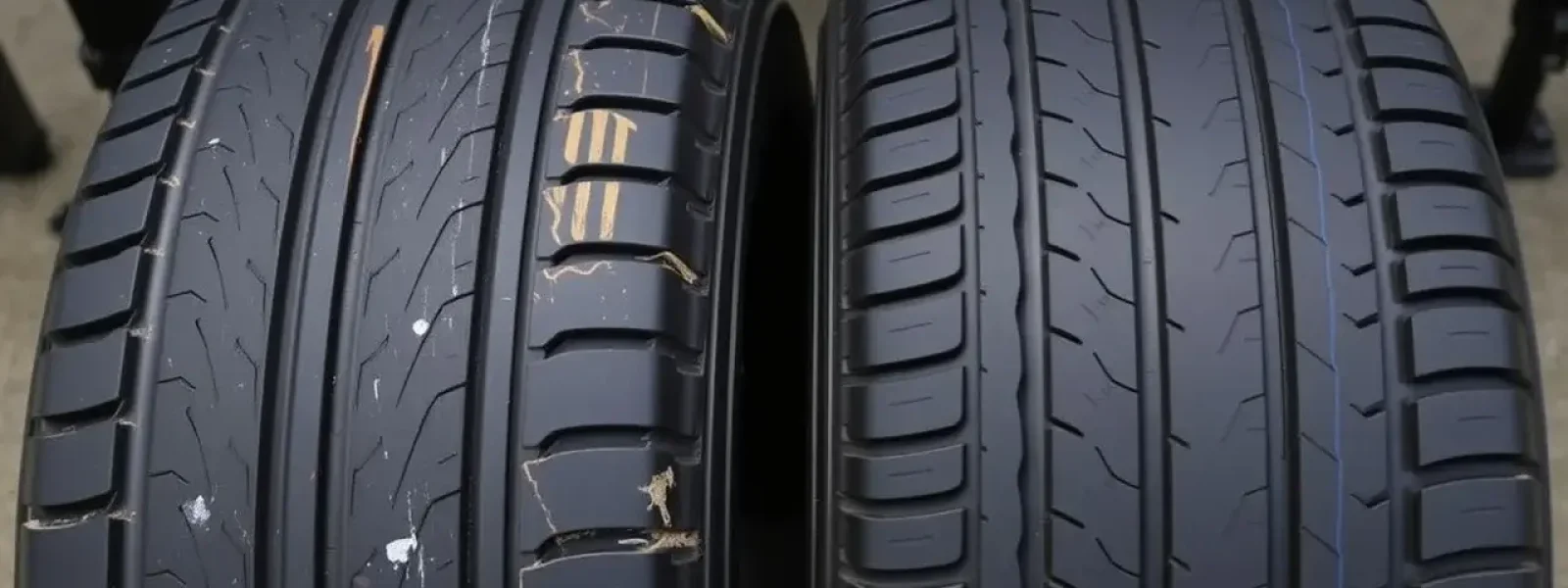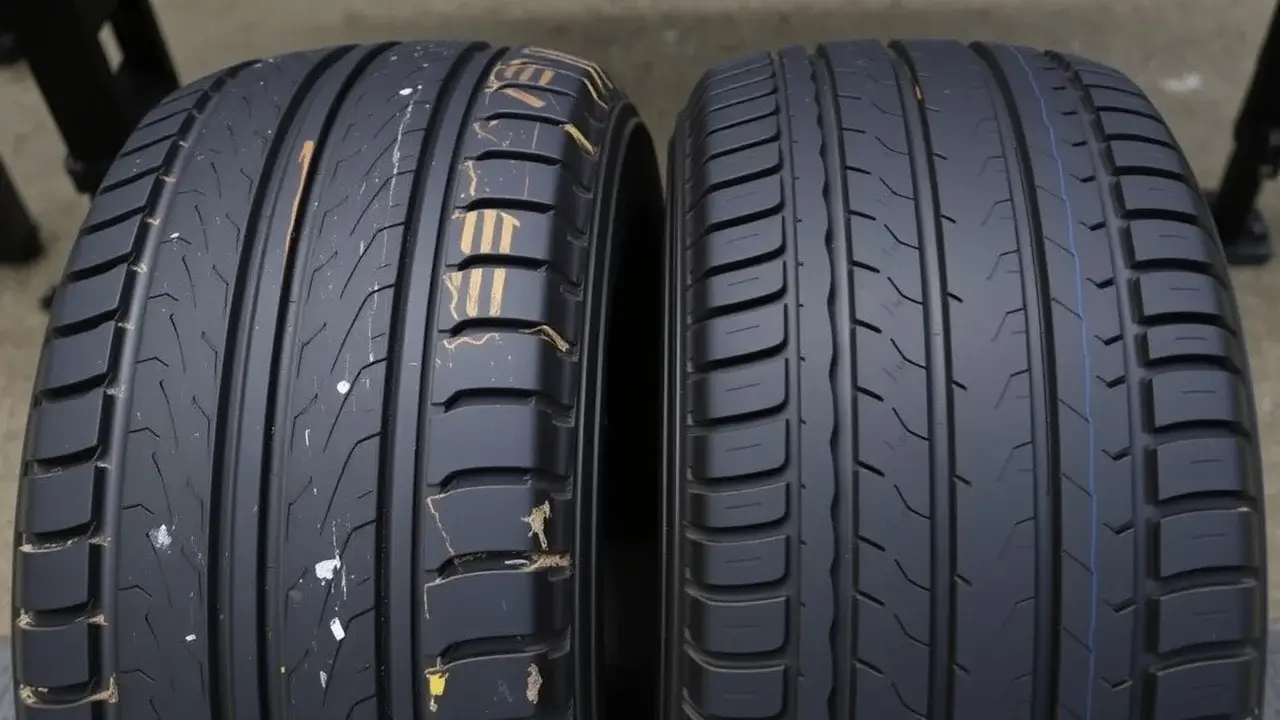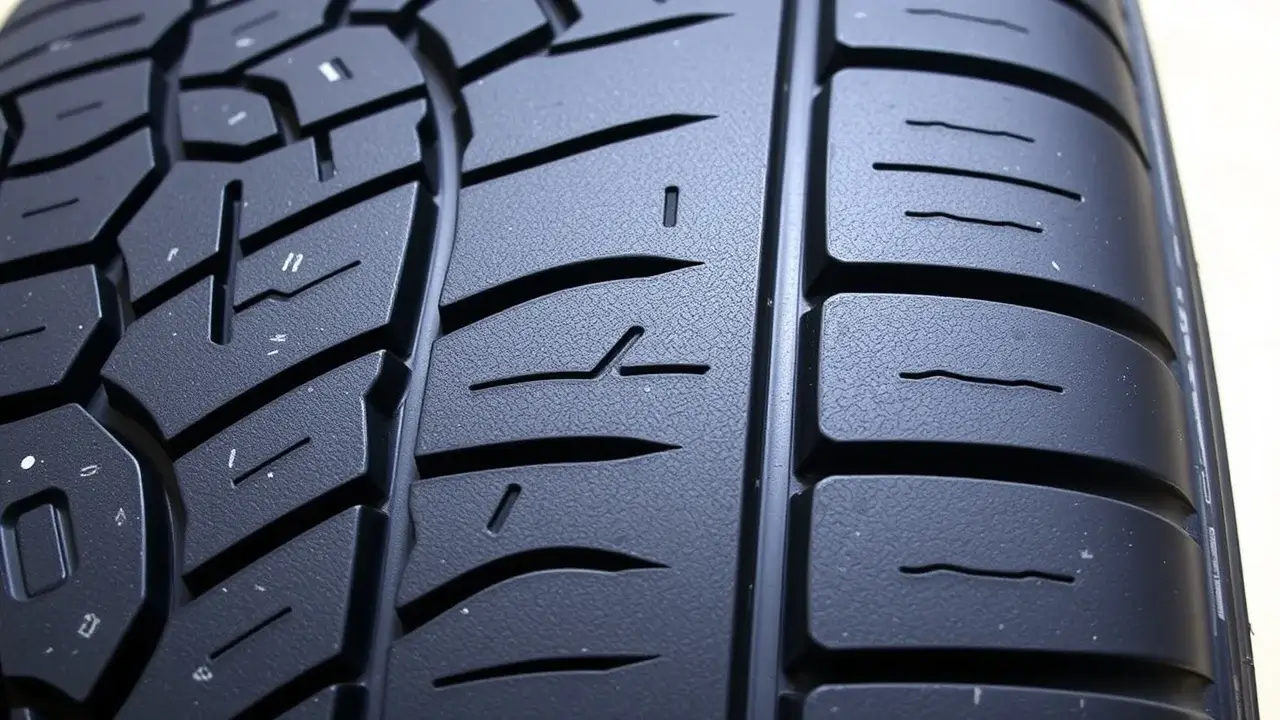Have you ever wondered which type of tire truly suits your driving needs: summer tires or all-season tires?
Choosing the right tires for your vehicle is crucial for safety, performance, and comfort. Let’s explore the Pros and Cons of summer tires vs. all-season tires to help you make an informed decision.
Understanding Pros and Cons of Summer Tires
Summer tires, also known as performance tires, are engineered for optimal performance in warm conditions. They feature specialized tread patterns and rubber compounds designed to provide excellent grip and handling on both dry and wet roads.
Key Features of Summer Tires:
- Tread Pattern: Shallower grooves and continuous ribs enhance contact with the road, improving cornering and responsiveness.
- Rubber Compound: Formulated to remain flexible in higher temperatures, ensuring superior traction and braking performance.
- Hydroplaning Resistance: Designed with channels to direct water away, reducing the risk of hydroplaning.
- Higher Speed Ratings: Many summer tires are rated for higher speeds due to their improved traction and stability.
Pros of Summer Tires:
- Enhanced Performance: Superior handling and responsiveness in warm conditions.
- Improved Traction: Excellent grip on dry and wet roads, reducing stopping distances.
- Precise Handling: Optimized for cornering and high-speed stability.
- Shorter Braking Distances: Due to increased contact with the road.
- Better Fuel Efficiency: Reduced rolling resistance can improve fuel economy.
Cons of Summer Tires:
- Temperature Sensitivity: Performance diminishes in temperatures below 45°F; not suitable for winter conditions.
- Tread Wear: Softer compounds may lead to faster wear compared to all-season tires.
- Cost: Generally more expensive due to specialized materials and performance capabilities.
- Unsuitable for Snow and Ice: Lack of deep grooves and sipes makes them ineffective in winter conditions.
🚗 Looking for the Best Tires for Your Driving Needs? Get Them Delivered & Installed!
Now that you understand the pros and cons of summer tires vs. all-season tires, it’s time to choose the right set for your vehicle. Amazon offers a wide range of top-rated summer and all-season tires, plus the convenience of professional installation services near you—so you can drive with confidence.
✅ Compare top brands, find the perfect fit, and schedule hassle-free installation—all in one place!
🔗 Shop Summer & All-Season Tires + Installation on Amazon
Understanding All-Season Tires
All-season tires are designed to provide balanced performance across a variety of conditions, including dry, wet, and light winter driving. They combine elements of summer and winter tires to offer versatility throughout the year.
Key Features of All-Season Tires:
- Tread Pattern: Moderate tread depth with patterns that balance water evacuation and traction.
- Rubber Compound: Formulated to perform adequately across a range of temperatures.
- Versatile Design: Suitable for various road conditions but not specialized for extreme weather.
- Durability: Typically longer-lasting than summer tires due to harder rubber compounds.
Pros of All-Season Tires:
- Versatility: Suitable for a wide range of weather conditions, eliminating the need for seasonal tire changes.
- Longevity: Typically offer longer tread life due to harder rubber compounds.
- Cost-Effective: Generally less expensive upfront and over time, as they negate the need for multiple sets of tires.
- Reliable Performance: Can handle dry, wet, and light snowy conditions fairly well.
Cons of All-Season Tires:
- Compromised Performance: May not provide the same level of grip and handling as specialized summer or winter tires.
- Winter Limitations: Not ideal for severe winter conditions; performance can decline in heavy snow or ice.
- Average Handling: May not offer the precise handling and responsiveness of summer tires in warm conditions.
- Longer Stopping Distances: Compared to summer tires in dry and wet conditions.
Comparative Overview
| Feature | Summer Tires | All-Season Tires |
|---|---|---|
| Optimal Use | Warm weather (above 45°F) | Moderate climates with mild winters |
| Performance | High performance on dry and wet roads | Balanced performance in various conditions |
| Tread Life | Generally shorter due to softer compounds | Longer due to harder compounds |
| Cost | Higher | Lower |
| Winter Capability | Not suitable | Limited; not for severe conditions |
| Hydroplaning Resistance | High | Moderate |
| Fuel Efficiency | Better due to reduced rolling resistance | Moderate |
Key Takeaways:
- Climate Consideration: Choose summer tires if you live in an area with consistently warm temperatures and desire peak performance. Opt for all-season tires if you experience a mix of weather conditions, including mild winters.
- Performance Needs: If you prioritize high-speed handling and responsiveness, summer tires are ideal. For general use with balanced performance, all-season tires suffice.
- Budget and Convenience: All-season tires offer cost savings and the convenience of year-round use, while summer tires may require seasonal changes and a higher investment.
☀️ Upgrade Your Ride – Order Your Summer or All-Season Tires with Installation Today!
Whether you’re preparing for better dry-road performance with summer tires or looking for a versatile all-season option, the right set of tires makes a huge difference. Amazon makes it simple to find the best tires for your vehicle and even helps you schedule professional installation in your area for a seamless experience!
🔥 Don’t wait—get your tires delivered and installed today!
🔗 Find the Best Summer & All-Season Tires + Get Them Installed on Amazon
Conclusion
Selecting between summer and all-season tires depends on your specific driving conditions, performance expectations, and budget. Assess your local climate and driving habits to choose the tire that best aligns with your needs.
☀️ Want to learn more about summer tires and how to choose the best ones? Dive into our complete summer tire guide to explore the best brands, performance tips, and expert recommendations:
🔗 Everything You Need to Know About Summer Tires: A Powerful & Reliable Summer Tires Guide in 2025
Frequently Asked Questions
1. Do summer tires last longer than all-season tires?
Not necessarily. Summer tires are purpose-built for warm climates and offer superior performance on dry roads, but their rubber compound used tends to wear out faster than all-weather tires. Tire rotation and proper maintenance can help tires perform well for 20,000 to 40,000 miles, depending on driving habits.
2. Why are summer tires more expensive?
Summer tires offer great performance because they are designed to grip the road in wet and dry roads. Their unique tread patterns and rubber compound used ensure better traction and performance, but this better-than-other-tires capability results in higher production costs.
3. When should I switch to winter tires?
If you experience colder weather, it’s advisable to use a set of winter tires before temperatures drop below 45°F (7°C). Summer tires aren’t built for snow or freezing temperatures, so many drivers switch to winter tires in the spring when the warmer season begins.
4. Are all-season tires suitable for snow?
All-season tires provide acceptable performance in light winter conditions, but they are not suitable for extreme winter driving. For icy or snowy roads, it’s best to switch to winter tires.
5. Do summer tires ride smoother than all-season tires?
Yes! Summer tires are designed to provide precise handling and traction and performance on dry roads, giving a smoother ride in warm climates. However, they may feel stiffer when used in colder weather.
6. Can I use summer tires in the winter?
No, summer tires are not suitable for snow or freezing temperatures. Their rubber compound used hardens when temperatures drop, which reduces grip and increases the risk of skidding. If you live in a region with light winter conditions, all-weather tires might be a better option.
7. How do the tread patterns of summer tires affect performance?
The tread patterns of summer tires feature less grooving and designed to grip the road more efficiently, enhancing traction and performance on wet and dry roads. These unique tread patterns improve cornering stability and high-speed control but are not designed for winter conditions.
8. What’s best: summer tires or all-season tires?
It depends on your driving needs. Summer tires offer better handling, braking, and acceleration in warmer conditions, while all-season tires are more versatile and can handle light winter conditions. To help you decide if summer tires are right for you, consider your driving conditions and whether you need tires in the winter as well.
9. Do summer tires require special maintenance?
Yes! To find the right balance between longevity and performance, rotation options and proper tire rotation are essential. Regularly checking air pressure, alignment, and tread wear will help you decide if summer tires are lasting as expected.


